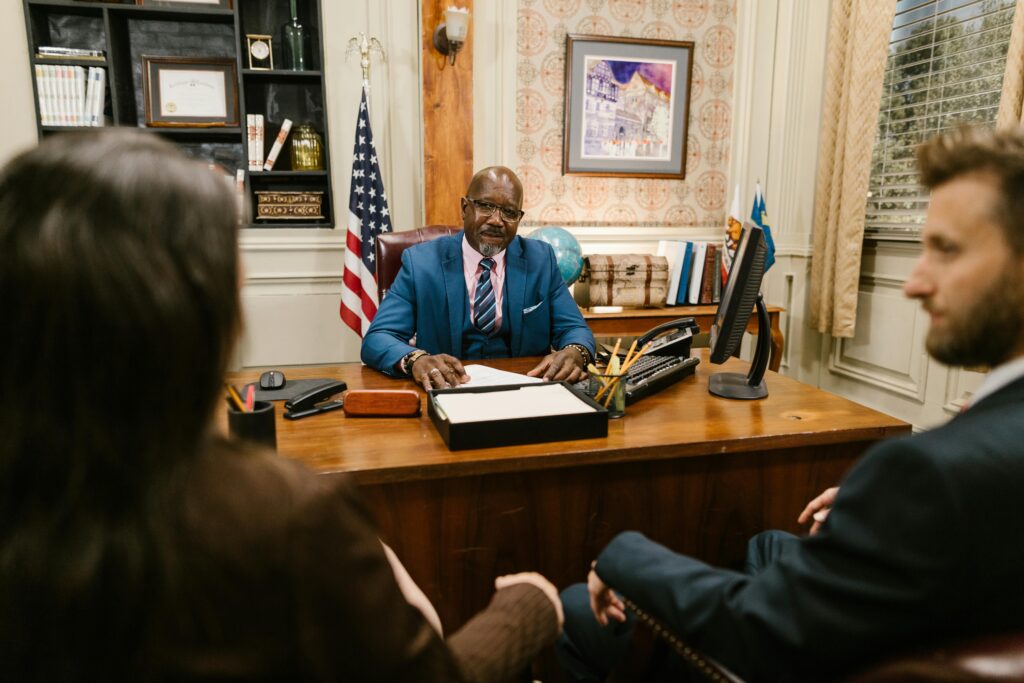I. Understanding Family Law
A. Definition and Scope of Family Law
Family law is a particular part of legal practice that is dedicated to family issues. These issues can be relationship-mediated such as marriage, divorce, child custody, adoption, and others. Family law differs in terms of jurisdiction, but the usual categories include:
• Divorce proceedings and disbursement of property and debts
• Child support and custody arrangements
• Adoption and guardianship proper filings
• Safeguards against abuse and domestic violence
B. Common Issues Addressed in Family Law
Family law deals with various emotional and financial problems that families face. The most common cases might include:
- Divorce: Legal termination of marriage.
- Child Custody: Deciding the child’s residence and who exercises parental responsibility.
- Alimony: Money maintenance furnished either by a husband to a wife or vice versa, after divorce.
- Child Support: Child upbringing expenses parents must share according to their income.
- Adoption: That which involves another person’s child being introduced into one’s family through legal aspects.
C. Importance of Specialized Legal Help in Family Matters
Family law cases can be very personal and involve intense emotions. A family lawyer will ensure that your relationship’s legal aspect is protected and that you have your entity rights in the process of separation. Skilled family law lawyers have knowledge in both the legal and emotional perspectives that are experienced by families at these times.
II. Characteristics of a Good Family Law Lawyer

A. Qualifications and Certifications
When searching for a lawyer practicing family law, the matters relating totheir qualifications should be well confirmed. Look for:
- Degrees: A law degree from an acclaimed institution.
- Specialization: Certification in family law, which is a clear indication of the level of expertise in this area.
- Memberships: Memberships in professional organizations, for instance, the American Academy of Matrimonial Lawyers.
B. Experience and Areas of Specialization
It you are to win your family case, then what is the experience of the previous lawyer you had is of utmost importance. You want a lawyer who has participated in cases which are similar to yours and is familiar with the statutes of the area.
Important referring to:
- Years in Practice: Most familiar lawyers may posses this skill better sharp with the delicate of family law cases.
- Specific Focus: Some lawyers may concentrate more on certain situations such as bitter child custody fights or a divorce, so ensure that they have the skills that you need.
C. Personal Attributes: Compassion and Communication Skills Apart from qualifications, the personal attributes of a lawyer may even be the decisive factor of your experience:
- Compassion: A competent family law lawyer knows that family issues sometimes carry heavy emotional burdens and hence empathizes with you and helps you.
- Communication Skills: Get customers who are clear dancers besides the complex legal procedures by using simple language, continually listen to your issues, and are sure that every point in the case is covered. Besides, ensure that your client can explain the instructions given.
- Legal Directories: Sites like Avvo and FindLaw, which have a database of lawyer profiles, ratings, and reviews.
- Law Firm Websites: Some law firms also offer information related to family issues and the law that are available on websites.
B. Recommendations from Friends and Family Reliable knowledge can be derived from people in your life. In addition to searching through the Internet, you can try to find a lawyer by asking friends or family members, if they can recommend someone based on their experiences. Personal experiences can illuminate you on the lawyer’s approach of handling cases and communicating with clients.
C. Local Bar Associations and Legal Aid Organizations A large number of areas have bar associations that offer referral services. They may direct you to competent family law attorneys near you. Additionally, legal aid agencies may be able to provide benefits for poor families and can give tips you to resources that fit your financial situation.
IV. Preparing for Your Consultation

A. Gathering Relevant Documentation The consultation will be conducted more effectively if the initial conversation features a series of documents, consider the greatest of the following:
- Marriage certificates
- Financial statements (bank statements, tax returns, etc.)
- Any existing custody agreements or court orders
- Documents related to your specific case issue
B. Preparing Questions to Ask the Lawyer To be in the consultation with readiness means you have a set of questions that can determine if the lawyer is the right choice or not. You have the possibility to ask about thoughts such as:
- What is your experience with cases like mine?
- How will you communicate with me throughout the process?
- What are your fees and how are they structured?
C. Understanding the Costs and Payment Structures Family law is often expensive, therefore clients are advised to know the ways in which their potential lawyer charges for services. The common cases in the area of payment structures may include:
- Hourly Fees: Provided for the time used on your case.
- Flat Fees: One price for making a document as an example.
- Retainer Agreements: Paying a set amount upfront for services rendered.
V. What to Expect During the Legal Processto Expect During the Legal Process

A. Initial Consultations and Retainer Agreements It is most probable, during your first meeting, that the lawyer will study your case details and you would get a decision on how to continue. You likely will choose them and sign a retainer agreement that contains the services they will render and the fees these services will involve.
B. Mediation and Negotiation Strategies A majority of family law cases might be solved through negotiation or mediation instead of taking the matter to a trial. This can, in most cases, save the time that is spent in the court process and also reduce the stress. Your lawyer will assist you in these processes, and if the situation allows, you will have a peaceful solution to the issue.
C. Court Appearances and Legal Representation If your case requires a courtroom decision, your legal representative will be standing before the judge and presenting your needs. They will be your representative during the hearings and will keep you up to date on the expected outcomes of your case as it progresses.
Conclusion
A good lawyer can be the key to the smooth sailing of your case, especially when it involves your family. By getting the basic understanding of family law, knowing the skills that a lawyer should have, and organizing well, you can be more confident during these hard times. Also, it is well-known that finding successful legal representation takes time and effort, but this is worth it because it is the main means to ensure that the best interests of your family are kept to the forefront all along the process.
FAQs
1. What is the Work of a Family Law Lawyer?
Family law attorney Family Law is a branch of legal matters that are related to family relations-sharing the same household, this type of issue usually involves divorce,child custody,and adoption privileges.
2. Do I Need a Family Law Lawyer?
If you have a family legal matter that seems too big to handle or aren’t sure what your options are—or even if you just want some guidance—talking to an attorney makes sense.
3. How to prepare for a consultation with an attorney Consider their mode of communication? comprehension of your matter and how comfortable you feel talking to them about your situation.
4. How much does a family law attorney charge?
Prices often depend on the geographical area, the experience of your lawyer, and how complex your case is. Before we wrap up, let me draw my attention to financials partly and if you are planning financially things are much clearer when it comes toward discussing fees or payment structures.
5. What is the time frame for a family law case?
The time frame will depend on whether the case settles or goes to trial and how complex is its nature Uncomplicated cases can be resolved in as little as a couple of months, but more complex ones might take much longer.



